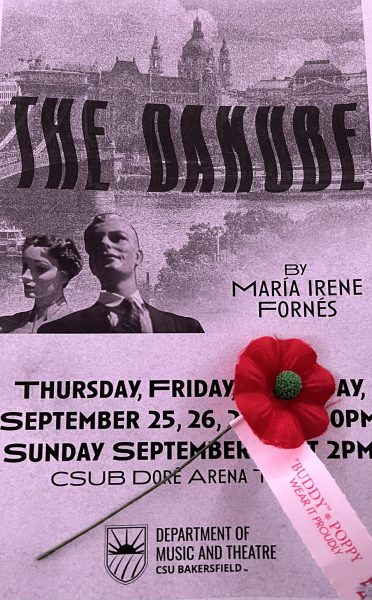Change on Title IX is long-overdue
Mandatory sexual harassment training affects student academics
October 11, 2019
It’s time to stop holding Title IX training over students’ heads. New and returning CSU Bakersfield students, it is that time of the year. The time of the year when we are trying to keep up with three to five classes as well as juggle multiple assignments while studying for midterms that are approximately three weeks away. Not to mention also trying to maintain a well-balanced personal life that includes having some recreational time, getting enough sleep, and physical activity. Now, we also have to make time for the yearly Title IX training.
In 2015, it was decided that all students and staff at the 23 CSU campuses were to complete a training program that covered, but was not limited to, issues dealing with: sexual assault, domestic violence, sexual harassment and discrimination based on gender and sexuality. In 2016, the decision went into effect and CSUB students were required to complete the Not Anymore online program, which takes approximately an hour to complete for the first time.
After a quick search of CSU Northridge, Long Beach, Channel Islands, and Fullerton’s Title IX pages, I found that at these universities, same as here at CSUB, the administration also threatens holds which will prevent students from registering for classes if the mandatory training is not completed. I wouldn’t be surprised if it was the same at the other 18 universities in the CSU system.
I understand that administration needs to make sure students complete the training one way or another. I’m not saying the training is not important or that we don’t need it. We definitely do.
On the CSUB campus between 2016 and 2018, there has been a report of stalking, another report of dating violence, two reports of domestic violence, four reports of fondling, and four rapes in the campus dorms according to Clery Crime Statistics, which can be found in the recently released 2019 Annual Security Report.
Truth be told, we are some of the lucky ones. Our numbers are low, but that shouldn’t be enough. Every student and employee should feel safe in their workplace or place of learning. Our numbers should be zero in every single category.
Where the issue of the Title IX training comes in is in how it is administered. The timing is poorly thought out and requiring it before students can sign up for classes can also be counterproductive for the goals of the training.
“I haven’t had time. I was going to do it this weekend,” said Citlali Leon, 17, a freshmen liberal studies major.
Midterms are about three weeks away for students. It may seem like asking students to take an hour of their day, or 30 minutes in the case of the students doing the refresher course, is not much. However, when your schedule is absolutely full, this mandatory training just becomes something else on your to-do list, and then it becomes less significant to students.
“I usually just wait because I know how to treat people. I was raised right,” said Francisco Villa, 20, a junior mathematics major. “It’s just a chore. I just wait a couple weeks before it’s due.”
This training shouldn’t be a chore. It should be something that all students can dedicate their full undivided attention to without feeling like they are neglecting the schoolwork they are actually being graded for.
I think the training should be changed to sometime before the semester starts or within the first couple of weeks of the semester. That way by the time students, mainly new students, step on the CSUB campus, they will already know where the resources discussed in the program can be found. Not to mention that the program would come at a time when most students will have minimal workload, as that time in the semester, all classes are usually presenting introductory material.
Additionally, the freshman seminar class could also be a great resource to tap into for the program. Options to take an in-person workshop are already available to students, but for freshmen specifically I think it would be a great use of their time to bring the workshop to the class and make sure the first time they take it they are able to ask questions and really learn the information. The class is supposed to cover the first-year experience anyways, so I think it be a great fit.
I found that students, regardless of how they feel about the mandatory training, think that the information is valuable.
“It’s good, it’s going to help us learn about sexual harassment and what to do about it,” said Leon.
Villa, although saying completing the training felt like a chore to him personally, agrees that it is important. “I think it’s useful if you’re coming into school [for the first time],” he said.
The changes to the Title IX training wouldn’t be major, just moving the timeframe up to the start of the semester instead of leaving it at when the semester really starts getting hectic for students. Maybe that change would also make it so that the university administration won’t have to hold it over students, because getting the classes you need is already a stressful process.






